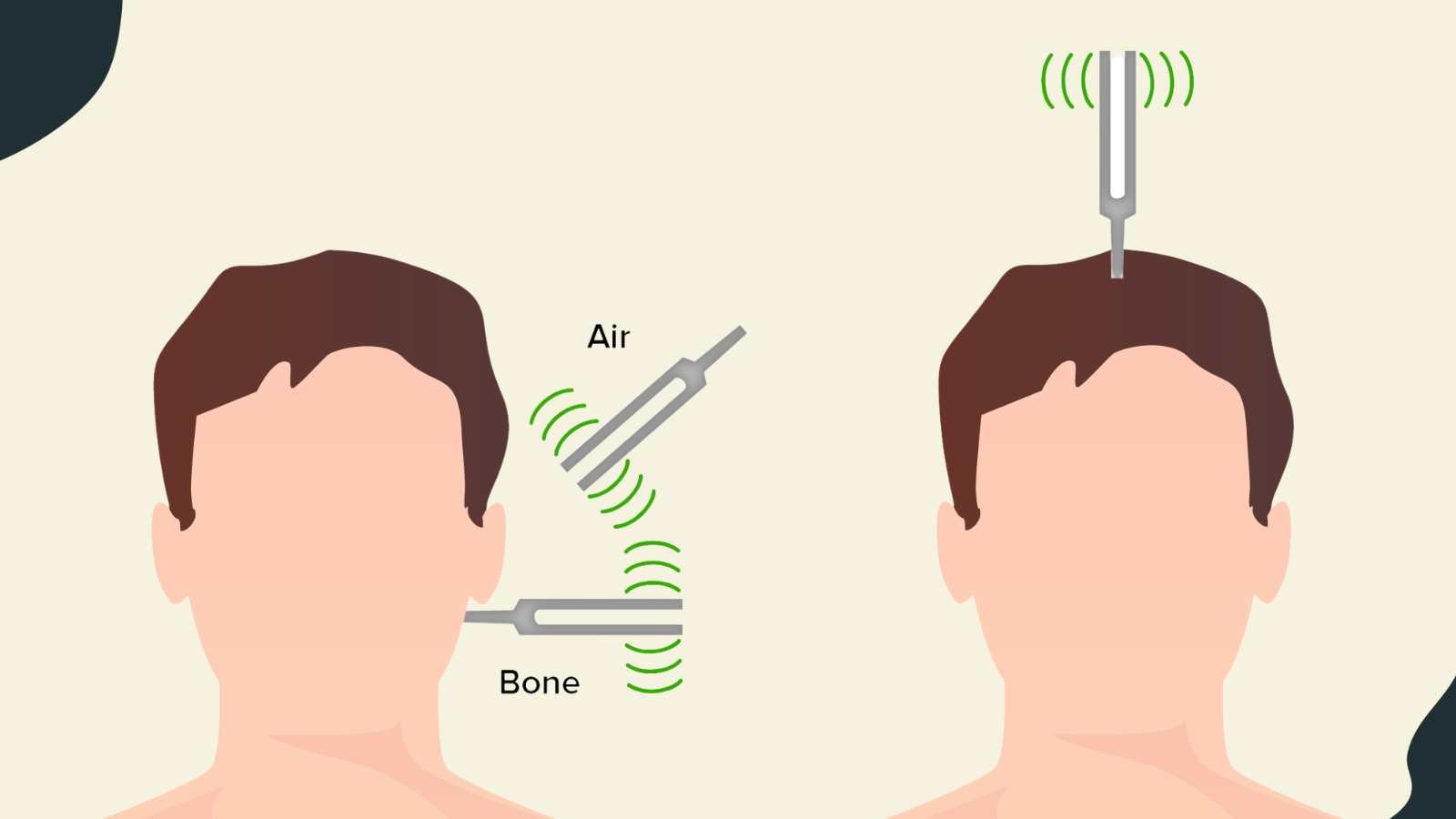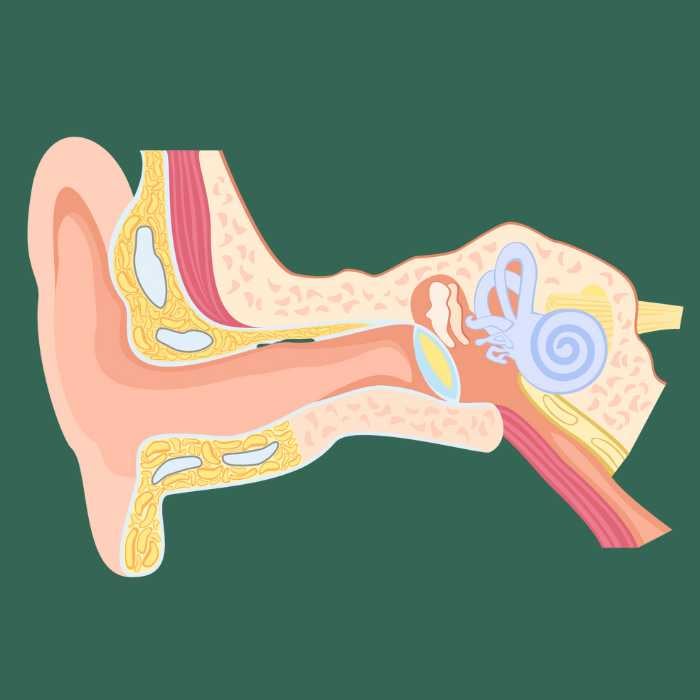Key Takeaways:
- Conductive hearing loss means that there is obstruction in the ear canal, ear bones, or eardrum that prevents sound from reaching the inner ear.
- Conductive hearing loss can happen temporarily, for example due to a cold or ear infection, or may be a long-term hearing loss, for example an eardrum perforation that can't fully repair itself.
- Diagnosis requires a comprehensive hearing evaluation with an audiologist.

If you find yourself frequently struggling to hear, or if sounds are muffled and far away, you may be experiencing conductive hearing loss. It reads like a frightening prospect, but there are treatment options. This blog post will explain everything you need to know about conductive hearing loss, from symptoms to causes and treatment options.
What Is conductive hearing loss?
Conductive hearing loss occurs when sounds cannot travel efficiently through the outer or middle ear to the inner ear. This hearing loss is usually caused by a problem with the ear canal, eardrum, or ossicles (those tiny bones in the middle ear). Conductive hearing loss is typically mild or moderate – severe conductive hearing loss is rare.
What does conductive hearing loss sound like?
If you are experiencing conductive hearing loss, sounds will seem muffled or hollow. In addition, sounds will seem muffled and may fluctuate in volume. Especially if you have fluid in the ears or allergies, sounds may seem more muffled at certain times than others.
Have you ever put in a pair of earplugs that muffled the rest of the noise around you? That experience provides a glimpse of what it sounds like for someone with fluid in their ear.
Other symptoms of conductive hearing loss.
In addition to difficulty hearing, you may experience pain or a feeling of fullness or pressure in your ear. Depending on what is causing the conductive hearing loss, there may also be drainage from the ear. You'll likely also notice that your voice sounds louder or may echo in your head.
How can I test my ears to find a conductive loss?
Here's a quick test to see if you may have conductive hearing loss: Cover your ear or press on the tragus, the flap of cartilage at the entrance of your ear canal.
If you notice no difference when pushing on the tragus versus when you don't, you likely have conductive hearing loss; if you have conductive hearing loss, the sound will be muffled.
A tuning fork test is another way to screen for conductive hearing loss. If you strike a tuning fork and place it on your forehead or behind the ear, it will generally sound about the same volume whether you hear it next to your ear or on the bone behind your ear. However, conductive hearing loss will make it seem louder when placed on the bone.

What to do if you think you have conductive hearing loss
It's essential to see a doctor to diagnose and treat suspected conductive hearing loss. The doctor will look in your ears with an otoscope during your appointment.
If you have an ear infection, they'll be able to see fluid behind the eardrum. However, other causes of conductive hearing loss may not be visible on inspection.
Therefore, a hearing test is an essential part of the evaluation. In addition, a comprehensive hearing test and tympanometry will confirm whether you have conductive hearing loss.
What are the common causes of conductive hearing loss?
Many different things can cause conductive hearing loss. Some common causes include:
- Earwax buildup
- Infections of the outer or middle ear
- Benign tumors of the middle ear
- Allergies or sinus congestion
- Fluid in the middle ear
- Fungal infection
- Perforated eardrum
- Ossicular chain discontinuity (a problem with the tiny bones in the middle ear)
- Otosclerosis (bony growth of a middle ear bone)
Some kinds of conductive hearing loss feel more prominent or intuitive, such as when you have a cold or allergies are acting up.
However, other types of conductive hearing loss can be more challenging to notice. For example, otosclerosis (bone growth) is a type of conductive hearing loss that often runs in families. It tends to occur gradually over time.
Most commonly, otosclerosis affects women in their 30s or 40s and can worsen following hormonal changes, such as after pregnancy.
Due to the many potential causes of conductive hearing loss, a hearing test is vital to help the diagnosis process.
An audiologist will diagnose your hearing loss, and an ENT is the best professional to provide medical advice regarding whether surgery, medication, or other medical treatment is recommended to address your conductive hearing loss.
Is conductive hearing loss permanent?
.jpeg)
Conductive hearing loss can be either permanent or temporary depending on a variety of factors: cause, patient age, length of symptoms, and other health factors, among others.
For example, hearing loss typically improves once you treat an ear infection. However, if your conductive hearing loss is caused by something that cannot be treated (such as damage to the ossicles), it is likely permanent and will require long-term management/treatment.
In some cases, surgery is an option to repair the ear and improve hearing. For example, while a hole in the eardrum can sometimes heal on its own, it may also need surgical repair in some cases.
How do I treat conductive hearing loss?
There are two potential types of treatment to consider with conductive hearing loss: medical treatment and hearing loss treatment.
Medical Treatment

If an infection caused your conductive hearing loss, it could typically be treated with antibiotics (if bacterial).
Decongestants or antihistamines can help reduce fluid production, and corticosteroids if it is due to allergies or sinus congestion. Earwax buildup will be removed by suctioning or irrigation (flushing with water).
Finally, surgery may be necessary if your conductive hearing loss is due to damage to the eardrum or ossicles.
Managing Hearing Loss
Fortunately, conductive hearing loss responds very well to hearing aids. Speech clarity is not impaired, so when hearing aids provide enough volume, sound comes through clearly. Several types of hearing aids can work for those with conductive hearing loss.

However, those with chronic ear infections, mastoid cavities, or another middle ear disease may need another option to help them hear better while keeping the middle and outer ears healthy. A good choice, in this case, is a bone-anchored hearing aid (BAHA).
Hearing loss can be challenging, but treatments are available for those with conductive hearing loss! If you think you may have conductive hearing loss, schedule an appointment with an audiologist so they can properly diagnose and treat your condition!






